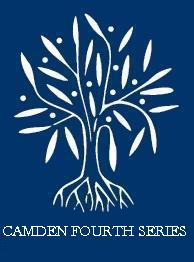No CrossRef data available.
Article contents
XVI Henry Brancaster v. Sir Alan Buxhill
Published online by Cambridge University Press: 21 December 2009
Extract
This short suit, the second involving Sir Alan Buxhill, concerned an attempt by Buxhill to compel Brancaster to lend him money and, when he refused to meet Buxhill's request, to get Brancaster into trouble for allegedly allowing the escape of two prisoners. Buxhill, it was said, stole the money which he could not otherwise obtain from Brancaster.
Buxhill was to claim that the two escaped prisoners ‘devoient grant raencon’ and that Brancaster, who had given caution for them, was responsible for their escape. After the events described, Brancaster having been dismissed, undertook to pay compensation, but had then refused to pay it. Brancaster denied that the prisoners had any real monetary value, and that he was in any sense responsible for their escape. The blame, he said, must be placed on Buxhill's concubine and on the wife of one of the prisoners who, together, had organized the escape. All such arguments were rejected by Buxhill. The court, unable to establish the facts, provisionally freed Brancaster from the prison into which Buxhill had cast him. There is no indication how the dispute was finally resolved.
- Type
- Texts
- Information
- Camden Fourth Series , Volume 26: English Suits Before the Parlement of Paris 1420–1436 , July 1982 , pp. 201 - 204
- Copyright
- Copyright © Royal Historical Society 1982
References
1 See his suit against Thomas Lound (no VIII).
2 Nothing is known of Henry Brancaster other than the evidence of this suit. Clearly a man of humble origins, he claimed to have served the king well, presumably as a soldier, since he had twice been made a prisoner. He denied Buxhill's statement that he acted as gaoler at Meulan.
3 For Sir Alan Buxhill, see appendix II.
4 It is not clear what command of the French language was achieved by those who resided in France for long periods. Brancaster may have pleaded ignorance of French because it suited him, for it was said that he understood it when he wanted to. In November 1446 Nicholas Molyneux, who had long experience in France and had worked in administration, asked to be excused if his knowledge of French was inadequate (Letters and Papers, II, ii, [677], [682]). The ‘Bourgeois’ of Paris also wrote of the linguistic difficulties English and French had in communicating (Bourgeois, p. 279Google Scholar). Henry de Lidan, on the other hand, was said to understand English well (supra, p. 38).
page 202 note a followed by des, struck out
5 For the earl of Salisbury, see appendix II. Buxhill was his half-brother.
6 Meulan, Yvelines, arr. Mantes-la-Jolie. The bridge had considerable strategic significance.
7 Jacques Viart was a commissaire at the Châtelet in 1421 (Favier, , Contribuables parisiens, p. 201).Google Scholar
page 203 note a MS ala
page 203 note b Written over leur
page 203 note c In the margin
8 Jean Aguenin was the second président of the Parlement.
page 204 note a In the margin
page 204 note b In the margin
9 24 June 1428,
10 12 November 1428.
11 This text is printed in Fauquembergue, ii, 282.Google Scholar




